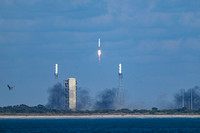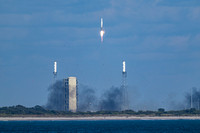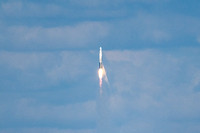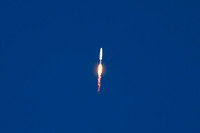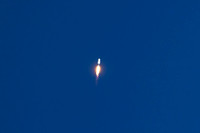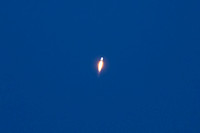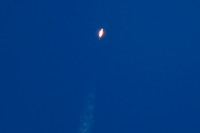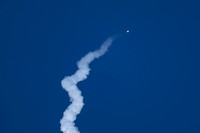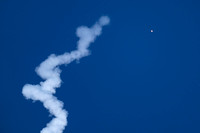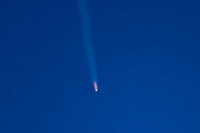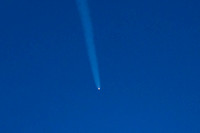Created 11-Feb-22
Modified 13-Dec-23
from Spaceflight Now...
Four NASA-funded nanosatellites were lost Thursday when an Astra rocket tumbled out of control minutes after liftoff from Cape Canaveral, the fourth time in five tries that the startup space company has failed to reach orbit.
Astra’s 43-foot-tall (13.1-meter) launch vehicle, named Rocket 3.3, took off from Space Launch Complex 46 at Cape Canaveral Space Force Station at 3 p.m. EST (2000 GMT). The kerosene-fueled rocket flew downrange for nearly three minutes, heading over the Atlantic Ocean to place four CubeSats into orbit for NASA and university teams in three states.
But the mission went awry when the rockets second stage was supposed to separate from the first stage about three minutes into flight. On-board video beamed back to Earth showed the rocket’s five Delphin engines shutting down as planned. Moments later, the two halves of the rocket’s payload shroud were supposed to jettison, revealing Rocket 3.3’s upper stage and satellite deployers. The rocket was then supposed to ignite its Aether upper stage engine to fire five-and-a-half minutes to place the CubeSats into orbit.
But the critical separation events did not appear to go according to plan. On-board video showed the fairing failed to fully jettison until after the second stage ignited. Moments later, an on-board camera showed the upper stage tumbling out of control more than 85 miles (140 kilometers) over the Atlantic.
Carolina Grossman, Astra’s director of product management, said on the company’s launch webcast that the rocket did not reach orbit. Debris from the rocket and its payloads fell in the Atlantic northeast of Cape Canaveral.
The mission aimed to place the four CubeSats, each about the size of a toaster oven, into a 310-mile-high (500-kilometer) orbit at an inclination of 41 degrees to the equator.
© Dennis Huff



